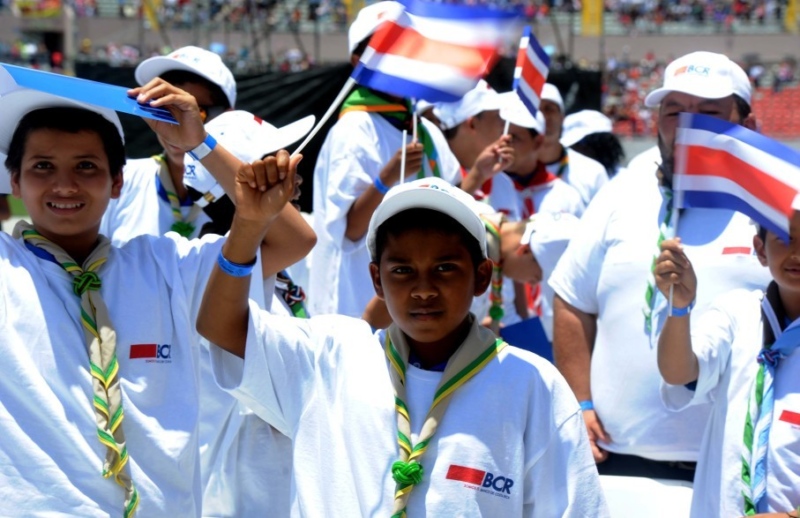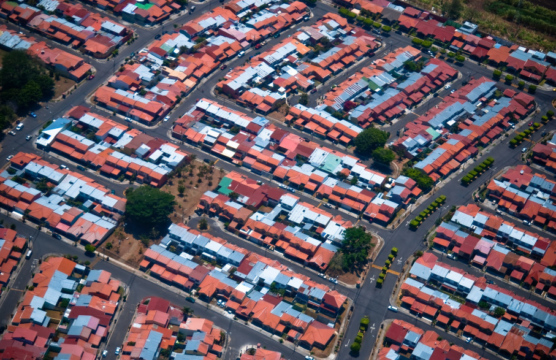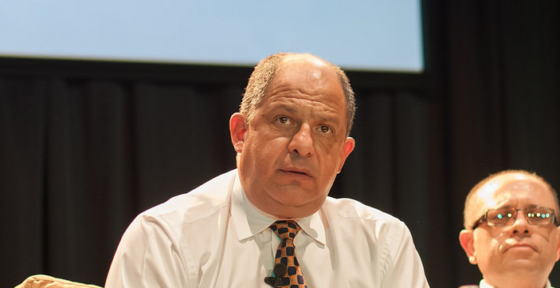
The Implications of Costa Rica’s Elections
The success of the Citizens’ Action Party (PAC) candidate, Luis Guillermo Solis, in Costa Rica’s first round president elections took analysts by surprise.
A Daily Publication of The Dialogue
Q: Costa Ricans go to the polls on Sunday to select the country's next president. Ruling party candidate Johnny Araya abandoned his campaign on March 5, paving the way for leftist anti-establishment candidate Luis Guillermo Solís to be elected. What are the biggest challenges facing Costa Rica's next leader? What types of policy changes can be expected from a Solís administration? To what extent will Solís succeed in working with Costa Rica's business community?
A: José Antonio Muñoz, partner at Arias & Muñoz in San José: "Getting his party to rally behind him and establishing a working relationship with Costa Rica's productive sector are Luis Guillermo Solís' big challenges after confirming his electoral win on April 6. Of these, the largest challenge is for Mr. Solís to get confirmation of party loyalty and unswerving support. For establishing a framework of work and understanding with the country's business sector, Mr. Solís has no choice. He is certainly left of center, but he does not campaign against existing institutions. He campaigns for better governance and accountability, and he absolutely needs the working support of Costa Rica's productive sector. Solís' challenge to govern, if elected, is threefold: to maintain the vibrancy of Costa Rica's productive sector, to find the right political and government figures to lead the administration, and to either find a working arrangement with Congress or to neutralize it. The easier task for the new president will be to seek and obtain the support of the business community. This, in turn, would facilitate the other two. Costa Rica's public-sector entities would profit from more professional management and systems than drafting from the private sector would afford. The Congressional minority of Mr. Solís' party in the future Congress can only become a working majority by the endorsement of pro-business representatives in the PUSC and PLN contingents. Only from the private sector can Mr. Solís generate safe and sound income to manage the fiscal deficit and fund his distributive social programs. And should the factional future Congress prove to be unmanageable for the new president, Mr. Solís would need the financial security and stability that only private economic expansion can create. The big premise, though, will remain unanswered until after the run-off election: can he garner overwhelming support from within his own party?"
A: Kevin Casas-Zamora, secretary for political affairs at the Organization of American States and former vice president of Costa Rica: "The challenges that await Luis Guillermo Solís are complex, and he's been given a weak hand to play. The first one is to build a viable majority in a legislature in which his party controls only one-fifth of the seats and has no obvious partners to forge a stable coalition. The second one is to appoint a credible economic team that can soothe the anxieties of domestic and foreign investors. The third one is to rein in a deteriorating fiscal situation, which calls for a tax reform that Solís has pledged not to pursue in the first 2 years of his administration. All this is a tall order for a leader that lacks any previous executive or legislative experience, a solid political base of his own and a team with deal-making and policy-making depth. Solís will also have to deal with an institutional set-up riddled with veto points and able to frustrate the best intentions. It is likely that a Solís administration will try to compensate for these difficulties and its lack of a strong popular mandate by quickly adopting many symbolic measures to signal its commitment to austerity and probity. This may soon increase its popularity among a citizenry that appears eager for a change. Alas, such gestures alone cannot durably protect Solís from headwinds if economic growth, which has been good and steady in the past four years, decelerates, legislative gridlock worsens and the expectations of the more radical sectors of his party's base (notably public sector trade unions) go unmet. As of today, all these outcomes appear probable. There are few doubts that Solís is a smart, moderate, decent, well-intentioned leader. Yet, his glaring political vulnerability may soon start to exact a toll. Costa Rica may be in for a rough ride."
A: Laura Porras, associate in the Remittances and Development Program at the Inter-American Dialogue: "Costa Rica's election results are a call for change--although not too much change. Costa Ricans want to protect their democracy, the country's relatively high living standard, and its civility and social peace. But many, particularly young people, are concerned that with more of the same status-quo politics, these huge achievements may be lost. The election, however, did not do much to clarify what specific changes Costa Ricans want. The campaign revealed the country's general malaise and wide-ranging demands for better government--that is, the need to end corruption and reverse accelerating institutional deterioration (political but also in areas like health, education and infrastructure)--but offered little in the way of concrete solutions. The first task for the new government will be to forge some level of consensus on the priorities that need to be addressed. The bigger task, however, will be to mobilize the necessary political backing in a society that has become increasingly complex and diverse, but whose institutions and habits have not kept pace. Solís was attractive to Costa Rican voters; they like his ideas but even more his temperament. He seems to occupy the middle ground in the country's contemporary political environment, progressive but not radical, demonstrating a willingness to pursue change and reform, but at a rate that is comfortable to most Costa Ricans. They know that the status quo is no longer viable and are happy to welcome a new party to power. But they do not want to risk the progress that the country has already made."
The success of the Citizens’ Action Party (PAC) candidate, Luis Guillermo Solis, in Costa Rica’s first round president elections took analysts by surprise.
Attracting foreign investment to grow the economy is a top priority for Costa Rica’s new government, President Luis Guillermo Solís said at the Dialogue.
How well is President Luis Guillermo Solís handling the economy? How strong are the country’s levels of investor and business confidence?
 Presidency of Costa Rica / CC BY-NC-SA 2.0
Presidency of Costa Rica / CC BY-NC-SA 2.0

